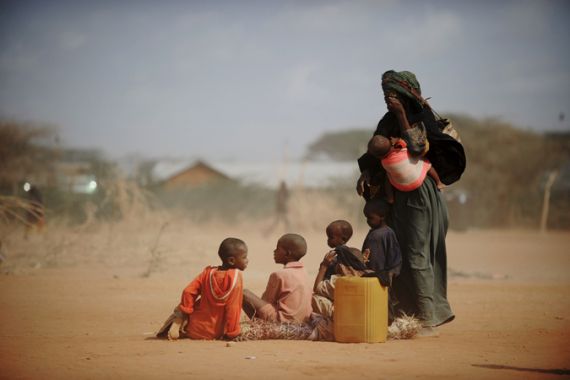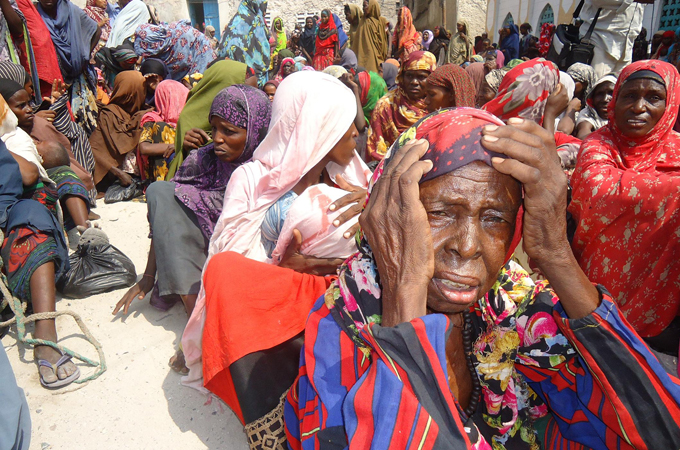UN ‘disturbed’ over Somali hunger crisis
Some children fleeing to Ethiopia and Kenya to escape war and drought have died of malnutrition on the way, UN says.

 |
| Female elders who fled drought-affected regions await food in their new camp in the capital, Mogadishu [Al Jazeera] |
Somalis who have fled drought and civil war to neighbouring Ethiopia and Kenya are showing “unprecedented levels” of malnutrition, and some children have died of hunger and exhaustion on their way out of the country, the United Nations refugee agency said on Tuesday.
The UN is “particularly disturbed” by malnutrition among children, said Melissa Fleming, the spokeswoman for the High Commissioner on Refugees. More than 50 per cent of the children arriving in Ethiopia are malnourished, compared to 30 to 40 per cent of those coming to Kenya, she said.
| Al Jazeera’s Mohammed Adow reports on the worst drought in the Horn of Africa in six decades |
Some children reportedly have died while attempting to make the trek from southern Somalia to camps in the other countries, Fleming said, while many die within 24 hours of arriving at the camps.
“Many families tell us they exhausted virtually all of their resources. Facing starvation, they walk for days, several weeks at times, through the desert, arriving in an appalling state of health,” she said.
Fleming said UNHCR estimated that a quarter of Somalia’s 7.5 million population was now either internally displaced or living outside the country as refugees.
Kenya’s Dadaab refugee complex, the largest camp in the world, houses more than 370,000 people, with around 1,400 arriving every day. The flow of Somalis entering the camp has increased in 2011, and overcrowding has recently sparked riots that Kenyan police put down with violence.
In June, 54,000 Somalis fled their country, the UN said, and an estimated one quarter of the population has been displaced.
Somalia has been torn by war for two decades, though the conflict has escalated in the past six years, as the newly created Transitional Federal Government and Islamic Courts Union (ICU) competed for rule of the country.
Though the ICU was defeated, the weak federal government relies on outside financial and military support to maintain its tenuous hold on power, and militias – including al-Shabab, an Islamist group – hold many times more territory than the government.
American fears of an al-Qaeda and al-Shabab resurgence in Somalia has led to increased US military intervention in the country, including a drone strike that wounded two al-Shabab leaders last month.